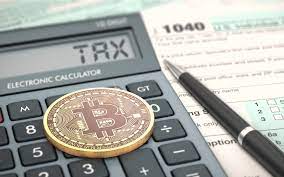The ATO is concerned that many taxpayers believe their cryptocurrency gains are tax-free, or only taxable when the holdings are cashed back into Australian dollars.
ATO data analysis shows a dramatic increase in trading since the beginning of 2020, and has estimated that there are over 600,000 taxpayers that have invested in crypto-assets in recent years.
This year, the ATO will be writing to around 100,000 taxpayers with cryptocurrency assets explaining their tax obligations and urging them to review their previously lodged returns. The ATO also expects to prompt almost 300,000 taxpayers as they lodge their 2021 tax return to report their cryptocurrency capital gains or losses.
Gains from cryptocurrency are similar to gains from other investments, such as shares. CGT also applies to the disposal of non-fungible tokens (‘NFTs’).
The ATO matches data from cryptocurrency designated service providers to individuals’ tax returns, helping it to ensure investors are paying the right amount of tax.
“The best tip to nail your cryptocurrency gains and losses is to keep accurate records including dates of transactions, the value in Australian dollars at the time of the transactions, what the transactions were for, and who the other party was, even if it’s just their wallet address,” Assistant Commissioner Tim Loh said.
Businesses or sole traders that are paid cryptocurrency for goods or services will have these payments taxed as income based on the value of the cryptocurrency in Australian dollars.
Holding a cryptocurrency for at least 12 months as an investment may mean the holder is entitled to a CGT discount if they have made a capital gain.


